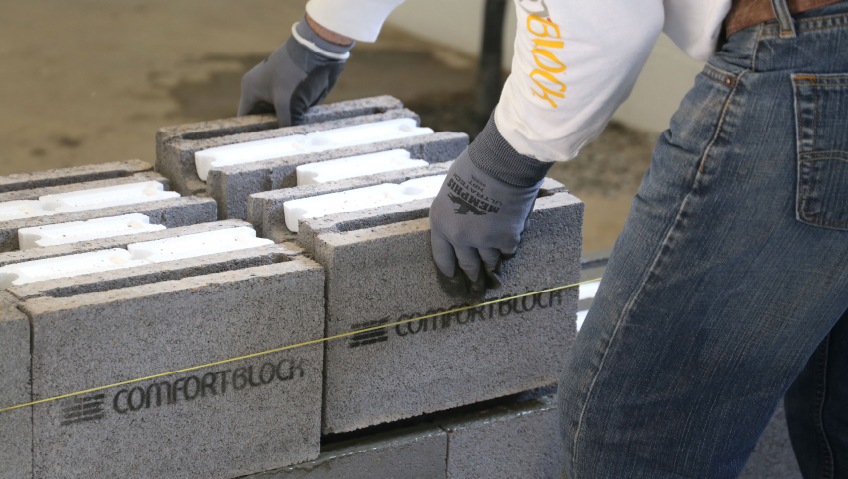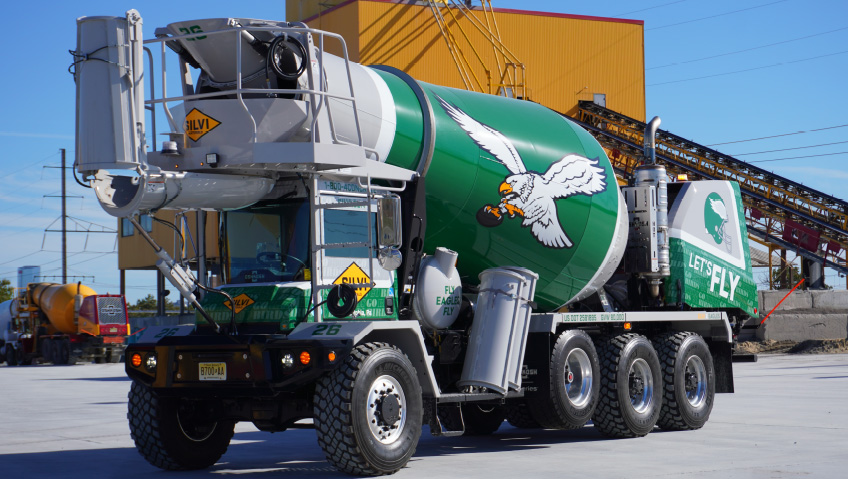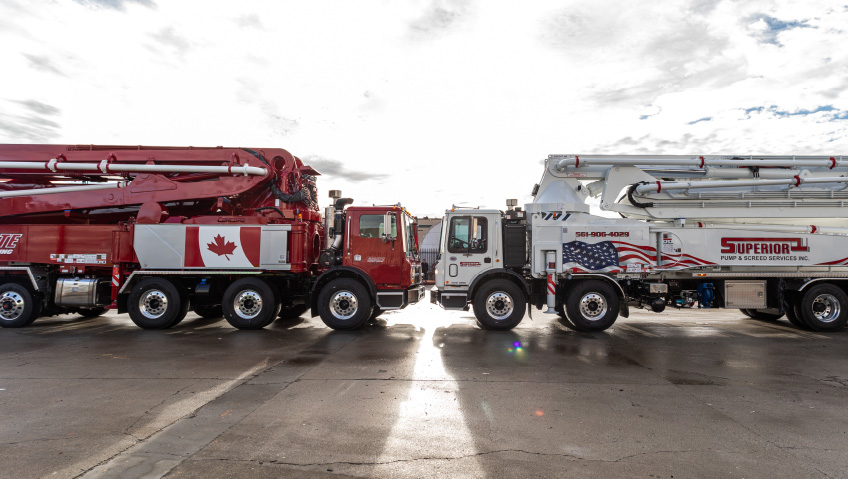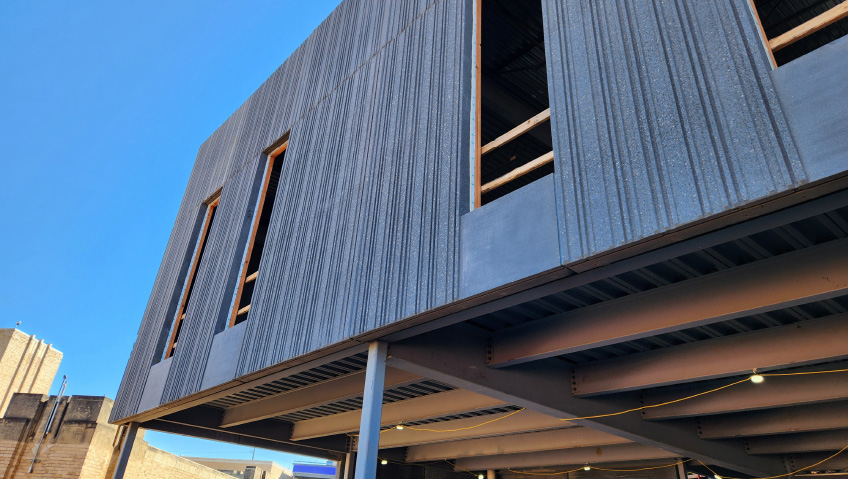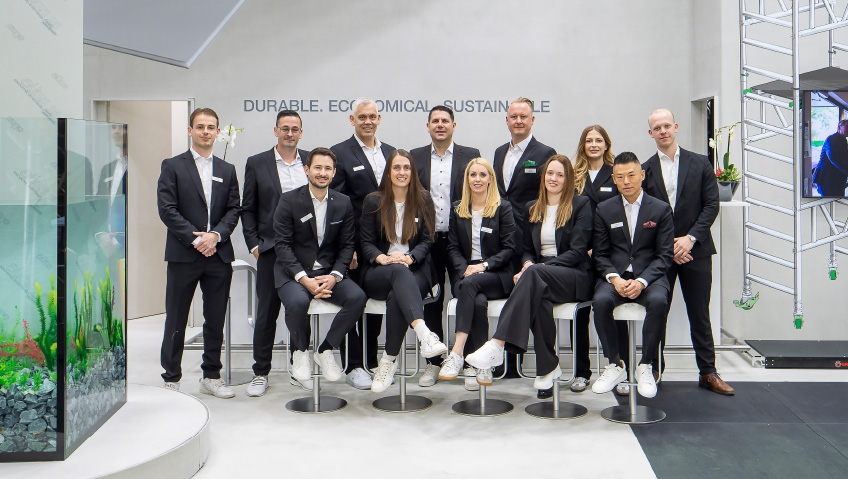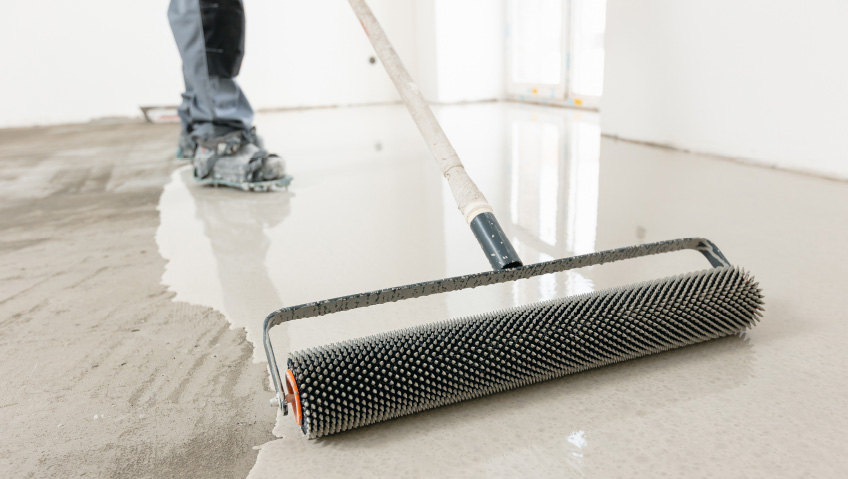From humble beginnings as a local construction supplier, Genest Concrete has evolved into a full-service company offering a wide range of concrete products, technical support, and retail services to meet the diverse needs of its customers. Now, the company is pushing the boundaries of modern masonry with its revolutionary Comfort Block system, which is transforming the way homes and buildings are constructed in the U.S.
Genest Concrete is not just a business, it’s a family tradition. Nestled in the heart of Sanford, Maine, the company has been a pillar of the construction industry for nearly 100 years. Founded in 1927, this fourth-generation family-owned business continues to grow, adapt, and innovate while staying true to its roots. Today, the company is run by brothers Chris and Matt Genest, along with their uncle David. Their great-grandfather started the company in the early 20th century, but it was their grandfather, father, and uncle who expanded its reach, guiding Genest Concrete through decades of growth. Under their leadership, the company transitioned from ready-mix concrete production to concrete block manufacturing and eventually into landscape products.
“We’ve always been a company that adapts to the customer’s needs,” says Chris Genest. “Whether it’s bespoke products or innovative solutions, we take pride in bringing value to our customers and reacting quickly to what they require.”
Indeed, the company’s longstanding culture of innovation is one of its key strengths. Over the decades, Genest Concrete has led the way in developing new products and techniques to meet the evolving needs of its customers, and it was this spirit of innovation that led to the creation of the Comfort Block system, a game-changing masonry solution that addresses some of the most pressing challenges in the construction industry today.
In 2007, Chris Genest traveled to Germany and saw firsthand how homes were being constructed with energy efficiency and sustainability in mind. This experience sparked the idea for Comfort Block, a system designed to bring European-style masonry techniques to the U.S. market.
Comfort Block is designed to be both energy-efficient and labor-friendly. One of the key challenges in the U.S. construction industry is the aging workforce of masons, many of whom are nearing retirement. By creating a system that is easier to install and requires less specialized skill, Genest Concrete hopes to attract a new generation of builders to the trade.
The Comfort Block system features larger, calibrated blocks that can be assembled using adhesive rather than traditional mortar, not only simplifying the building process but also increasing efficiency on the job site. Traditional masonry requires precise skill and time to mix mortar, apply it evenly, and ensure that each course of blocks is level. Comfort Block eliminates much of this labor-intensive work by offering pre-calibrated blocks that stack easily and require no mortar joints.
“By using adhesive instead of mortar, the Comfort Block system allows for faster construction and a more durable wall,” says Chris. “You don’t have to worry about leveling each course, and the adhesive provides greater flexibility when working in different weather conditions. You can work in colder or hotter temperatures, and even in light rain, without the issues that come with using traditional mortar.”
One of the standout features of the Comfort Block system is its focus on energy efficiency. The system includes blocks that are four to 16 inches thick to accommodate five different wall thicknesses, and the 12- and 16-inch blocks have built-in layers of insulation that significantly reduce thermal conductivity. The design of Comfort Block significantly enhances the energy efficiency of a structure by combining the mass of the blocks with built-in insulation and the removal of mortar joints. In traditional masonry walls, around eight to 10 percent of the wall consists of mortar joints, which lack insulation and create thermal inefficiencies. By eliminating these joints, Comfort Block maximizes insulation and reduces energy loss, resulting in a more efficient wall system.
Comfort Block’s design also makes it easier to integrate utilities like plumbing and electrical systems into the wall after construction. This adaptability adds another layer of convenience for builders, reducing the time and complexity of installing essential systems.
Comfort Block is not just for residential and commercial buildings—it’s also an ideal solution for landscaping features and lighter construction projects. Whether constructing landscaping walls, sheds, or outdoor kitchens, Comfort Block offers a quicker, easier alternative to standard concrete masonry units (CMUs). Since its efficient assembly system requires less labor, the product is accessible even for landscaping crews with minimal masonry experience. And because mortar is required only for setting the base course, Comfort Block reduces the need for water on the job site and requires less setup and cleanup than traditional masonry. This versatility and ease of use make Comfort Block a valuable tool for a wide range of construction and landscaping applications.
G-mix, Genest’s proprietary low-carbon formula for concrete, is used for all the company’s products including the Comfort Block system. Since 1985, the company has been using slag, a recycled byproduct of the steel industry, to replace a significant portion of the cement in its concrete mixes. Genest Concrete initially incorporated slag into its concrete mix to enhance its strength, but over time, this approach has also become a key part of the company’s sustainability efforts. Replacing 50 percent of the cement with slag significantly reduces the carbon footprint of the product, making it more environmentally friendly while maintaining performance.
Sustainability is built into the Comfort Block system, with the company actively researching and experimenting with new materials, including foamed glass, a recycled product made from melted-down bottles and windows. Foamed glass is lightweight, offers excellent insulation, and can be reused or repurposed as clean fill after its initial use. In fact, Genest Concrete envisions a future in which concrete block manufacturing will heavily rely on recycled materials, and the company is actively exploring innovative ways to incorporate these materials into its products.
To further enhance its environmental efforts, Genest Concrete has worked with Climate Earth to complete Environmental Product Declarations (EPDs) for its products. These third-party assessments measure the carbon footprint and energy consumption associated with the company’s manufacturing processes. “We’re proud of the fact that our EPDs show we have a significantly lower carbon footprint than many of our competitors,” says Chris. “It’s just another way we’re trying to do our part for the environment.”
As the construction industry faces increasing pressure to build more energy-efficient, resilient, and sustainable structures, Genest Concrete is positioning itself at the forefront of these changes. One of the major challenges in the construction industry today is the increasing frequency of extreme weather events such as hurricanes, floods, and wildfires. To address this, the Comfort Block system is designed to create more durable homes capable of withstanding these harsh conditions more effectively than traditional wood-frame structures. Homes built with Comfort Block are not only resistant to fire but are also much better equipped to endure severe weather, minimizing the level of damage typically seen in other forms of construction.
Comfort Block’s ability to resist fire, reduce energy costs, and provide superior insulation is a testament to the company’s commitment to innovation, and Genest Concrete’s dedication to providing durable, sustainable solutions is also driving interest from potential partners across the country. Currently, the company is supplying Comfort Block to projects in Louisiana and is exploring licensing opportunities to expand the system’s availability nationwide.
As the industry evolves, Comfort Block’s precision-engineered design and mortarless assembly make it well-suited for integration with robotic and automated masonry systems. The uniformity and interlocking features of Comfort Block facilitate consistent and efficient placement, aligning with the capabilities of current masonry robots like Hadrian X, which are designed to handle standardized materials. As the construction industry increasingly adopts automation to enhance efficiency and address labor shortages, materials like Comfort Block that are compatible with robotic systems are poised to play a significant role in the future of masonry construction.
“We’re the only company in North America offering a system like Comfort Block,” says Chris. “But we’re seeing more demand, and we’re working to make it available to more customers across the country.”
As Genest Concrete approaches its 100th anniversary, the company’s vision for the future remains rooted in its core values of craftsmanship, innovation, and sustainability. The Comfort Block system is just one example of how the company is adapting to meet the needs of a changing industry. “We believe that the future of construction is going to be more automated, more energy-efficient, and more sustainable,” says Chris. “We’re working on products that can help make that future a reality, and we’re excited to be part of the change.”
With nearly a century of experience and a proven track record of innovation, Genest Concrete is not only preserving its family legacy but also shaping the future of masonry in the U.S. The Comfort Block system, along with the company’s commitment to sustainability, ensures that Genest Concrete will continue to be a leader in the construction industry for generations to come.

